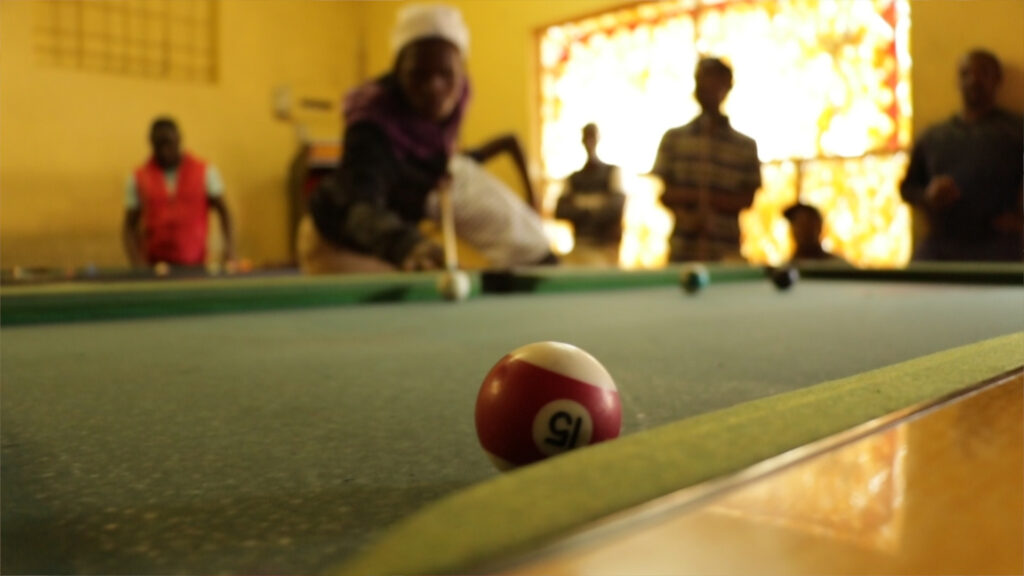
People love the idea of culture. Finding out what makes France French, Spain Spanish or Denmark Danish is why we travel. We see culture as a manifestation of the greatest human achievements – we flock to art galleries and read the latest Booker Prize–winning novel. But if we’re so naturally gripped by the idea of culture, why is it so hard to get traction for the value of culture in business?
Cultural intelligence doesn’t come naturally in corporate settings, even for researchers. When we go to work we often switch off our cultural curiosity. We begin client debriefs with penetration statistics, household expenditure and demographics, but we rarely attempt to immerse our clients in the culture their product is inextricably nestled within. Variations in survey results are described as ‘market differences’, a damp squib of a term for what is actually a complex web of cultural influences.
Why do we fail to integrate cultural insight in a meaningful way, when we know that culture is inherently interesting and compelling? We suspect market researchersare careful about only ‘measuring’ and reporting on things we have a clear definition for. Culture feels like an academic concept and is hard to translate in a way which is meaningful and impactful for businesses. Our lack of a definition means that industry side-lines culture and the opportunities it presents.
In order to overcome this barrier to engaging more deeply with culture, we propose a simple definition that market researchers can use to bring it into the mainstream:
Culture is shared meanings and learned behaviours.
If it sounds oversimplified, we agree. However, the hard reality is that if we rush in with detail and nuance our clients will lose interest. And as nuanced as researchers may be in our work and amongst each other, we need definitions that
win buy-in from clients, executives and stakeholders in order to create the space to do our work at all. Shared meanings and learned behaviours does this successfully because it codifies what we already understand intuitively:
- Shared Meaning: From our clothes to our gender identity or morning routine, everything has meaning behind it. Culture is a set of meanings that we convey as individuals and read in others: tweed jacket vs. tracksuit top, right vs. left or early bird vs. late riser. We operate implicitly through a set of shared meanings to give us structure and guidance in the world.
- Learned Behaviours: Culture is also a practice. It is behaviour that is passed down and adapted through generations to create social norms and from peer to peer to assimilate trends into the cultural mainstream. Learned behaviours can range from how we celebrate religious festivals and public holidays, to how we clean our homes, to how we use Facebook or dress for yoga.
Opening our eyes to culture makes research projects more impactful and meaningful. Below are two case studies demonstrating the value of cultural understanding for two very different clients: an NGO and a multinational fast-moving consumer goods company.
Case Study 1: Tackling a Public Health Epidemic
Framing the challenge
South Africa has the largest population living with HIV of any country in the world. A web of factors including poverty, politics, instability and infrastructural challenges in delivering healthcare have all combined to create a desperate situation whereby a huge proportion of the population is affected by the virus and the challenges in battling the epidemic are great. There is a particular group of at-risk men whom the health community have found hardest to reach – they are young, black, have low levels of education, don’t engage in “health-seeking behaviour,” are sexually active, and live in rural areas. They’re unemployed or underemployed. They’ve grown up seeing violence; as victims but also in some cases as perpetrators. They aspire to be respected and helpful members of the community but life beats them down. They drink heavily and have multiple sexual partners.
Public health programs that have worked elsewhere often fail and the prevalence of HIV in South Africa continues to climb. Why? It is not because people don’t know about the virus and its mode of transmission. It is because health everywhere is fundamentally about shared meaning and learned behaviour—in other words, culture. Culture shapes both what health means to us and our health-related behaviour in ways we often cannot articulate. Health interventions demand behaviour change, and to succeed they must be built on an understanding of local culture.
Ethnographic data
By conducting ethnographic interviews with these men, we came to understand that whilst monogamous relationships are supposedly the norm or expectation, all the men in our sample were having multiple sexual extramarital relationships. One man, Bafana, told us how one night his wife confronted him after finding out about his girlfriend, and in his state of intoxication, he hit her in the face. Bafana recently learned that he is HIV positive, and he is sure he contracted the virus from another casual partner. He hasn’t yet told his wife and feels he cannot introduce condoms to their relationship as doing so would formally disclose his “cheating” to his wife. He says even now he’s trying stop “cheating” on his wife, but is finding it difficult to change his ways.
It is difficult for cultural “outsiders” to empathise with a man like Bafana—and certainly difficult to develop health interventions—without some context. How to we understand and activate this ethnographic information?
Cultural understanding
Gender roles and expectations for young men vary across cultures. In South Africa, young men are beholden to rigid gender-based ideals and build a huge portion of their identity around the notion of being a provider for the family. However, for Bafana, as for many others, the reality is that underemployment and poverty are the chronic stresses that underpin daily life. He feels like he is failing at this particular aspect of being ‘a man’.
Our definition of culture provides a framework for understanding this context:
- Shared meaning: Masculinity means being a provider for one’s family and maintaining self-sufficiency at all costs: men bring in the income to provide for the family. Masculinity is defined by virility. Having lots of sex with lots of women is just ‘what men do’ and is a way of establishing social capital.
- Learned behaviour: People learn behaviours that are consistent with shared cultural meanings. But what if they don’t or can’t comply with expectations? In South Africa, when factors like unemployment and racism prevent men from fulfilling the role of ‘male provider’, they feel failure and shame. From peers and older male family members they learn to display their masculine status in other ways, such as drinking and having (risky) sex with multiple partners outside of monogamous relationships. In this context, where the odds seem stacked against you, one thing within your control is your sex life.
Health intervention that encourage men to change their behaviour while ignoring the cultural meaning and consequences that are tied to behaviour are bound to fail.
During our ethnographic interviews we also saw that almost all of our participants had at least one or two deceased parents. Because so many people in this generation of parents died of AIDS-related condition we can infer that some of our participants’ parents died of AIDS, but not a single one articulated that. Instead, if an explanation was given at all, it was due to “illness”. This ethnographic information points to a key cultural insight: a manageable disease so common in South Africa is still highly taboo.
- Shared meaning: For many South Africans, HIV evokes memories of deep trauma – of family members deteriorating and passing away when they were younger. Whilst people know rationally that HIV is a condition which one can manage on medication, the meaning of HIV for many is still death and grief.
- Learned behaviour: HIV is not discussed; not among peers and not between sexual partners.
Bringing these examples of shared meanings and learned behaviours together, we can start to understand the reasons men are having lots of risky sex yet not discussing HIV, nor disclosing their HIV status.
Impact
For years, the HIV strategy in South Africa was based around the ABC model: Abstinence, Be faithful, use a Condom – a moralistic approach which did not work. By taking a step back to understand sexual behaviour in a cultural context, we can make a powerful case for an empathetic, harm-reduction approach rather than a paternalistic one. Interventions will operate specifically within the cultural context of ‘at-risk’ young men, a group disproportionally underserved by the health community, to move the needle on rates of HIV infections at a country level. This ongoing project has been showcased multiple times on a prestigious global stage as a pioneering approach which uses a broad, culturally sensitive method to re-examine what is known or supposed about those people affected by HIV.
Case Study 2: Developing a $10 Million Retail Strategy
Across the developing world, pets (especially dogs) are becoming more popular. They are increasingly considered a status symbol in places such as Brazil, Mexico, Russia and Argentina, where owning a pet is a sign of wealth; it signals that the owner has enough time and money to care for it. Surprisingly, although dogs have transitioned from stray pests to members of the family, pet food manufacturers were not seeing a corresponding upswing in their sales. So, what were the dogs eating?
Mars Petcare came to us with their biggest challenge across the developing markets: how could they make pet food a necessary part of the middle-class pet-owning lifestyle? We conducted a global research project to find out.
Anna Rodriguez
Visitors to Anna Rodriguez’s home in São Paolo will find a generous host who is always cooking and receive a warm welcome not just from Anna herself but also from her two dogs, who jump all over every guest. Anna was recruited for our research as a person living in a ‘middle class suburb’; still, the barred windows show how close the house is to the neighbouring favela. So devoted is Anna Rodriguez to her dogs that she maintains she has “five children, not three”.
During an ethnographic interview Anna went to the butcher to buy mince, which she cooked with onions, garlic and herbs, then combined with boiled rice. The final part of this feeding ritual involved lovingly setting the meal down on the floor as a gift for her dogs; the apples of Anna’s eye. This was a far cry from the table scraps that manufacturers assumed Brazil’s pet dogs were being sustained on.
Bella Maria is Anna’s Pomeranian. She is ‘the top dog’: a beautiful, white fluffy cloud, frequently taken to the grooming salon in Anna’s handbag. Bella Maria sleeps on the bed and is the first to be greeted when Anna returns home (before her son, Sandro).
Beauty in Brazil is a status symbol and social currency to an extent which sets it apart from other countries. Plastic surgery is discussed openly and many aspire to going “under the knife” to achieve a more ‘acceptable’ standard of beauty. This culture of beauty trickles down even to the distinctly un-glamorous world of pet food, where Bella Maria, a perfect living plush toy, is the lucky recipient of two freshly cooked meals a day.
- Shared meaning: Aesthetics are something to strive for and value. Good looks are a source of validation and are worth cultivating and investing in.
- Learned behaviour: Pets can be a manifestation of a beauty asset. They can be treated in a way which elevates them almost to the status of surrogate child, including taking pride in providing meals.
Feia (‘ugly’)
But beauty isn’t the only way to climb Brazil’s social hierarchies. Meet Feia (‘ugly’). Feia is an old, stray mongrel that sleeps in the shed on the porch. He doesn’t receive the same shows of affection from Anna as does Bella Maria, and he’s never been the recipient of a handbag ride to the grooming salon. Interestingly though, Feia had been taken in from the street—something we had not seen in any of the other markets in which we had done research. Feia had respect in the family for two reasons: he was old, which meant he should be looked after, and he had struggled in his long life, as signified by the scars and scratches on his body.
Like Anna, Brazilians are kind and inclusive, which often means caring for the weaker and older members of society. Social care services do not really exist and care homes for the elderly are not common, as children often look after their ailing parents. The story of ‘struggle’ is intrinsic to Brazil’s complex social history, one in which every ethnicity has a story of how they’ve
struggled for inclusion in Brazil’s multicultural society. Showing strength through struggle is part of every Brazilian’s personal and family story. Having struggled is a means of demonstrating you are deserving of respect and inclusion; a place at the dinner table.
- Shared meaning: To struggle is the method by which character is forged. To have struggled throughout a long life is a mark of status. Old age, even in dogs, denotes being deserving of care and respect rather than being burdensome and irrelevant.
- Learned behaviour: There is a sense of duty in Brazilian society towards those who are elderly or have struggled – caring for such people is a behaviour which is perpetuated down generations as families take care of parents and grandparents. Taking in an elderly stray mirrors this behaviour. Doddering Feia, with his numerous scars, is welcomed as a family member; the old dog can finally enjoy a comfortable life.
Impact
Prior to the study, Mars Petcare had been trying to convince the Brazilian emerging middle classes, people like Anna, to feed their pets a budget-friendly pet food rather than what Mars assumed was scraps from the human table. This was a miscalculation of meanings and behaviours. Brazilians are already creating fresh meals from scratch for their pets because their pets – both the beautiful ones and the ones who have struggled – deserve more a lower-rung dry product. Our cultural analysis enabled us to make greater sense of elaborate doggy dinners. Mars subsequently created a retail strategy that placed premium meat pouches in the fresh sections of the supermarket. This intervention earned Mars Petcare $10 million in their first year alone.
The Value of a Definition
We cannot hope to understand people or products in isolation from culture. Culture is a lens through which to understand the world and our behaviour in it. Culture is complex and ethnographers are highly skilled researchers, but we must promote a definition which is intuitive and concrete, not nebulous and esoteric. Our ambition as cultural researchers is to show that through examining culture in a meaningful way, we can:
- create behavioural interventions by tapping into local cultural discourses of meaning,
- find answers to problems that people have been struggling with for years, and
- create real, below the line business impact.
In our opinion, this all starts with a simple definition.
RELATED ARTICLES
Organizational Culture as Lazy Sensemaking, Laura McNamara
Consulting against Culture: A Politicized Approach to Segmentation, Marta Cuciurean-Zapan
Building an Innovation Strategy from Cultural Insights, Jay Hasbrouck



0 Comments